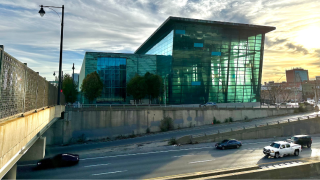Q. What are the really big challenges at the moment in making data centres sustainable – and how is EdgeConneX addressing them?
The challenge is not the shift itself. The main challenges are two-fold. One, we see that sustainability does not have a common definition in the marketplace. At EdgeConneX we focus on the UN’s Sustainable Development Goals as a benchmark. We do this as they focus on people (i.e. diversity, inclusion, equal pay), and the way business is conducted with respect for stakeholders as well as the environment. A sustainable future requires a healthy plant and a healthy cohesive society with equal opportunities. The UN SDG’s forces us to look at these topics as well. That is why we take the broad Environment, Social and Governance definition of sustainability. Second reason is that it creates a common basis for reporting. EdgeConneX can audit and report on its sustainability metrics and goals we focus on. At the same time our customers and partners can easily reference our results and how they align and support their own sustainability targets.
Q. It’s more than energy efficiency and where you get your energy: what other sustainability issues does the data centre industry need to look at?
A major topic that EdgeConneX sees in Europe and specifically in the Amsterdam region is stricter rules on the development of data centres. These rules do not only look at mandatory PuE requirements and stricter guidelines on NOx-emissions and the handling of contaminated soil. They also look at the (positive) contribution a data centre has in the local community other than investment and employability. This is defined as “(natural) inclusion of a data centre” in its surroundings. At EdgeConneX we look to not only follow those regulations established but go further than what’s mandated by building sustainable data centres that are environmentally friendly, but also do not detract from the space and power needs of the broader community in the Netherlands.
With the help of a landscaping architect, we are able to bring back old historic “lines” in the polder landscape. Preventing “boxing” of the landscape. At the same time, we invest in biodiversity bringing life back into the green fields around Schiphol Airport. Although a challenge here is that we need to make sure that we don’t attract more birds, as we are in proximity to inbound and outbound flights.
A final important issue is the pressure that data centres put on electricity distribution grids. These grids are not only important for data centres but for other residential, commercial and industrial sectors as well. As seen in recent years, the energy transition requires a massive amount of electrificiation increasing the strain on already congested public networks. That is why EdgeConneX will be developing and leveraging its own power sourcing solutions, which is not connected to the congested distribution grid and does not compete with economic development and the energy transition.
Q. Are your customers and prospective customers now putting sustainability and related issues into their menu when they select data centre suppliers?
Yes they are. We see customers asking for certifications and examples of what we do in specific locations towards sustainability. The challenge here are not the requirements but more that every company uses different standards. A way we tackle this at EdgeConneX is by means of transparency of our goals and metrics as well as aligning us with the UN SDG’s in creating a common language.
Q. You have data centres in the US, India, Europe and South America: how do the issues – and the solutions – vary in these different parts of the world?
We see large variations here, with Europe applying the strictest requirements. The strength of EdgeConneX is repeatable designs and processes. That is why we apply the solutions found in a specifc area are being applied to others as well. In India, we contribute our experience and knowhow to AdaniConneX so we can leapfrog and create state of the art data centres.
Q. And is EdgeConneX giving these issues the same attention in all the parts of the world where you operate?
In the US, we focused on the procurement of renewable energy certificates. At the same time, we took a critical look at our waste processing and improved it. Lessons learned will be globally implemented elsewhere as well as stated in previous question.
A final remark I would like to add is that the transition and revolution we see requires teamwork. It is not the responsibility of anyone alone. That is why we will start to work closely with vendors and partners to see how we can improve performance, and with our customers sustainability plans to see how we can help each other become more sustainable and good global citizens. Internally we created a taskforce to understand and learn via virtual lunch and learns to change the way we think about sustainability, what we can do in our work environment to contribute and to make it more inclusive and pervasive in the organisation.





